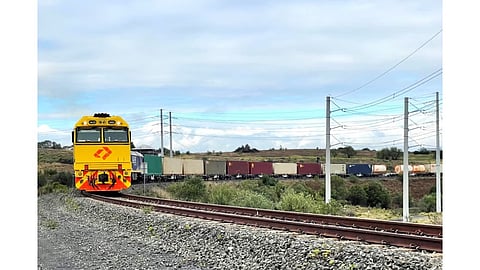

RE for coal export supply chain: Queensland’s state-owned renewable energy electricity supplier CleanCo has signed a renewable energy agreement with Aurizon that operates the country’s largest electrified rail freight system, the Central Queensland Coal Network. It will operate this network using energy from wind and solar farms across the state. CleanCo will supply this clean energy from the Woolooga Solar Farm, the MacIntyre Wind Farm, and the Kaban Wind Farm. It will cover approximately 25% of Aurizon’s electricity needs, supporting the operator’s goal of net-zero operational emissions by 2050. In an official statement, the state government said that through such partnerships, CleanCo is embedding sustainable, lower-emission energy across every stage of the supply chain in the Mackay region, from rail transport to port operations.
AGL sells stake in Tilt: Australian energy generator AGL Energy Limited has agreed to divest 19.9% of its 20% equity in renewable energy company Tilt Renewables to entities led by Queensland Investment Corporation (QIC) and the Future Fund, for $750 million. The sale, expected to close by Q3 FY26 pending regulatory approvals, will support AGL’s strategy to recycle capital and invest in flexible, dispatchable capacity. AGL says it will retain a small stake in Tilt and maintain a strategic partnership to advance renewable generation and offtake opportunities as it targets 6 GW of new firming and renewable projects by FY2030. Currently, Tilt provides AGL with 1.6 GW of renewable energy generation capacity under long-term power purchase agreements (PPAs).
Solar & storage farm cleared: Australia’s federal government has approved the 300 MW Dunmore Solar Farm and a 150 MW battery storage project near Toowoomba in Queensland in just 19 days. To be built on previously cleared land and adjacent to existing transmission lines, the project will avoid new network construction and major land clearing. Once operational, it will power over 140,000 homes and cut emissions by up to 740,000 tonnes annually. Environment and Water Minister Murray Watt said that the Albanese government has green-lighted more than 100 renewable energy projects since 2022. The project will be built by Samsung C&T Renewable Energy Australia.
20-Year PPA for Leonora Hybrid Power System: Pacific Energy, the Australian distributed energy developer, has signed a 20-year PPA with Horizon Power to deliver a new hybrid power system for the town of Leonora in Western Australia. Located near Leonora Airport, it will comprise 2.4 MW of solar, 2.7 MW of diesel generation, and a 9.9 MWh battery energy storage system (BESS). The project is expected to supply about 60% of the town’s forecast energy demand from renewables. Construction on site is scheduled to begin in April 2026, with completion slated for early 2027. It will provide Leonara’s total town power supply under the PPA from 2027 and operate under a similar model to the other 10 systems Pacific Energy owns and operates for Horizon Power across the state.
RENOVA wins 85 MW in Philippines: Japan’s RENOVA, Inc. has secured a 20-year fixed-price power sales contract for an 85 MW AC solar project in the Visayas region of the Philippines. It won the project under the country’s Green Energy Auction (GEA) 4 (see Over 10 GW RE Selected Under Philippines’ GEA-4 Auction). The project – RENOVA’s maiden solar venture in the Philippines – is being jointly developed with local firm Victorias Green Energy Corp. The deal supports the Philippines’ goal to source over 50% of its energy from renewables by 2050. For RENOVA, it is a step ahead towards its target of achieving 5 GW of installed capacity globally by 2030, including 1.8 GW overseas.
Solar for Japanese airport: The Chubu Centrair International Airport in Japan’s Nagoya region plans to launch a 3.9 MW solar power project on-site to start commercial operations by April 2027. Under an agreement with the airport, Chubu Electric Power Miraiz Co., Ltd. will install the solar project through C-Energy and sell the electricity generated (approximately 4.34 million kWh annually) to the airport. Solar panels will be deployed on the rooftop of passenger terminals 1 and 2 and cargo areas, supplying renewable electricity for self-consumption of the passenger terminal building and cargo facilities.
